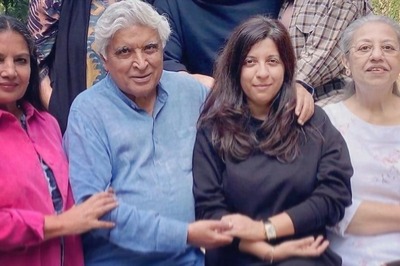
views
Washington: Count your blessings this holiday season. It's good for you. While it seems pretty obvious that gratitude is a positive emotion, psychologists for decades rarely delved into the science of giving thanks.
But in the last several years they have, learning in many experiments that it is one of humanity's most powerful emotions. It makes you happier and can change your attitude about life, like an emotional reset button.
Especially in hard times, like these. Beyond proving that being grateful helps you, psychologists also are trying to figure out the brain chemistry behind gratitude and the best ways of showing it.
University of Miami psychology professor Michael McCullough, who has studied people who are asked to be regularly thankful, said: "When you are stopping and counting your blessings, you are sort of hijacking your emotional system."
And he means hijacking it from out of a funk into a good place. A very good place. Research by McCullough and others finds that giving thanks is a potent emotion that feeds on itself, almost the equivalent of being victorious. It could be called a vicious circle, but it's anything but vicious. He said psychologists used to underestimate the strength of simple gratitude: "It does make people happier ... It's that incredible feeling."
One of the reasons why gratitude works so well is that it connects us with others, McCullough said. That's why when you give thanks it should be more heartfelt and personal instead of a terse thank you note for a gift or a hastily run-through grace before dinner, psychologists say.
Chicago area psychologist and self-help book author Maryann Troiani said she starts getting clients on gratitude gradually, sometimes just by limiting their complaints to two whines a session. Then she eventually gets them to log good
things that happened to them in gratitude journals: "Gratitude really changes your attitude and your outlook on life."
Gratitude journals or diaries, in which people list weekly or nightly what they are thankful for, are becoming regular therapy tools. And in those journals, it is important to focus more on the people you are grateful for, said Robert Emmons, a psychology professor at the University of California, Davis.
Concentrate on what life would be without the good things especially people such as spouses in your life and how you are grateful they are there, he said. Grateful people "feel more alert, alive, interested, enthusiastic. They also feel more connected to others," said Emmons, who has written two books on the science of gratitude and often studies the effects of those gratitude diaries.

















Comments
0 comment